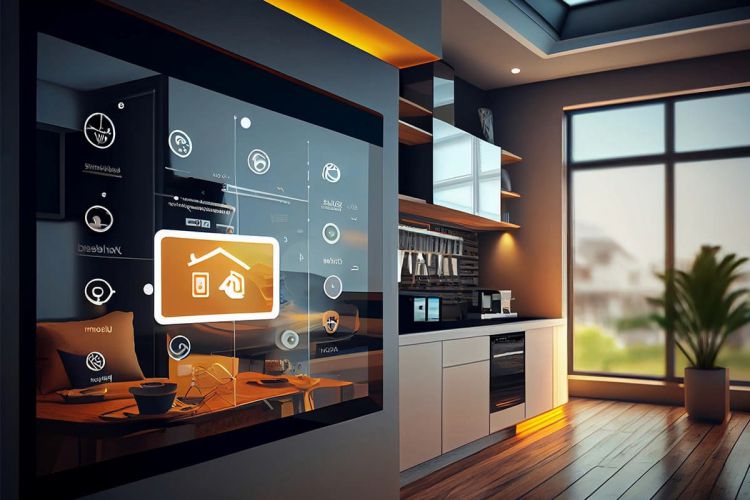The idea of a ‘smart home’ has come a long way. What started with a few novel gadgets has grown into a fully integrated part of daily living. Looking towards 2026, this evolution is accelerating. The focus is shifting from single voice-activated devices to genuinely intuitive homes that are secure and energy-efficient. These advancements are set to streamline daily routines, bolster property safety, and significantly improve how households manage energy. The key trends shaping the home of the near future are already taking root.
Seamless Automation and AI Assistants
The next step for home automation is about anticipation. Instead of just reacting to commands, smart systems by 2026 will learn a household’s rhythms and preferences. The home’s central AI could learn to open the blinds just before an alarm, adjust the heating for when someone gets home, and start the coffee machine on schedule. It’s a level of convenience born from devices communicating seamlessly. A smart refrigerator might flag that the milk is low, while the television could automatically pause a film when a delivery is detected at the front door. The technology aims to operate discreetly, making life feel simpler.
Smarter Security for Peace of Mind
Home security is becoming much more intelligent. While video doorbells are now common, the systems of 2026 will provide more specific insights. AI-driven cameras will be capable of telling the difference between a family member, a courier, and an unfamiliar person, reducing the number of false alerts. Instead of a simple motion notification, a homeowner might get an alert that says ‘Parcel delivered.’ Smart locks will also advance, enabling homeowners to grant temporary digital keys to a tradesperson, valid only for a specific window of time. These interconnected systems will create a robust security net, offering reassurance whether residents are home or away.
Energy Independence and Efficiency
With household budgets under pressure from rising energy costs, achieving energy self-sufficiency is a major trend. The practice of installing solar panels has shifted from a niche interest to a mainstream solution for cutting bills and reducing a home’s carbon footprint. Although the cost of installing solar panels is an upfront investment, the financial returns and boost to property value make it an attractive option. For residents in the Bristol area, it’s possible to discover affordable solar panel installation services by local experts who can manage the entire project. By 2026, solar systems will commonly be paired with intelligent battery storage. These batteries will learn a home’s energy usage patterns, optimizing when to use stored solar power, charge an electric car, or even sell excess electricity back to the grid.
The home of 2026 will be defined by this smart combination of automation, security, and energy management. These are not distant concepts but real changes that are already beginning to improve daily comfort, safety, and household finances. Through these technologies, a house can become more than just a building; it can be a responsive environment that supports a modern lifestyle, protects its occupants, and promotes sustainability. The next few years will certainly be transformative for home technology.

